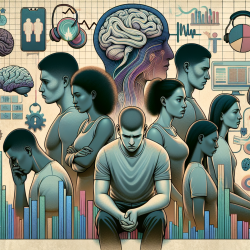Introduction
Depression in children and adolescents is a significant public health challenge, affecting nearly 14% of adolescents before they reach 18. It leads to personal suffering and is associated with increased suicide risk and functional impairments. Psychological treatments are a primary option for managing youth depression, with meta-analyses showing their effectiveness, albeit with modest effects compared to adults.
Research Insights
A recent systematic review and meta-analysis conducted by Cuijpers et al. (2021) examined the effects of psychological treatments on depression in children and adolescents. The study focused on response, reliable change, deterioration, and recovery as outcomes. This meta-analysis included 40 randomized trials comparing psychotherapy for youth depression against control conditions, offering valuable insights for practitioners.
Key Findings
- The overall response rate for psychotherapies was 39% at 2 months after baseline, compared to 24% in control conditions.
- Clinically significant improvement was observed in 54% of youths in therapy, compared to 32% in control groups.
- Clinically significant deterioration was lower in therapy (6%) compared to controls (13%).
- Recovery rates were 58% in therapy and 36% in control conditions.
Implications for Practitioners
These findings underscore the effectiveness of psychotherapies for youth depression compared to control conditions. However, more than 60% of youths receiving therapy do not respond, indicating a need for more effective treatments and strategies. Practitioners should consider the following:
- Enhance treatment fidelity and optimize delivery methods to improve response rates.
- Explore combination treatments and personalized approaches for non-responders.
- Focus on binary outcomes such as response and remission for clinical relevance.
- Be aware of the potential for deterioration and develop strategies to address it.
Encouragement for Further Research
Practitioners are encouraged to delve deeper into the nuances of psychotherapy outcomes for youth depression. Understanding why certain treatments work for some and not others can guide the development of more effective interventions. Additionally, reporting on binary outcomes can enhance the clinical relevance of research findings.
To read the original research paper, please follow this link: The effects of psychological treatments of depression in children and adolescents on response, reliable change, and deterioration: a systematic review and meta-analysis.










